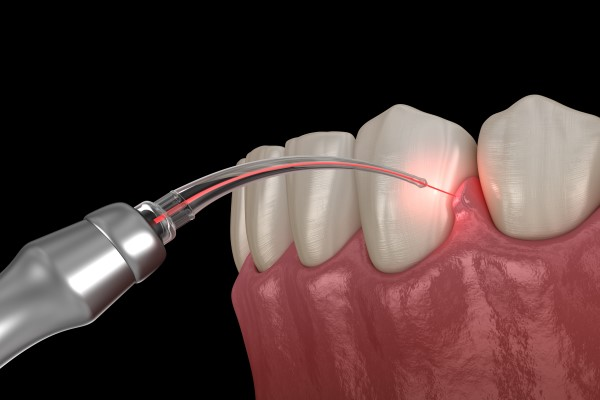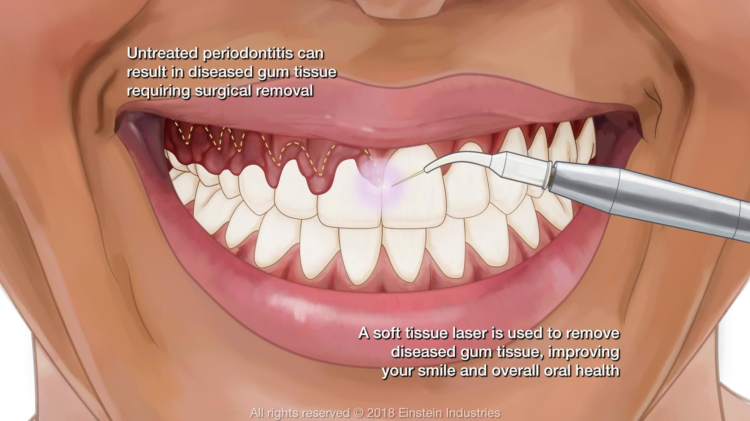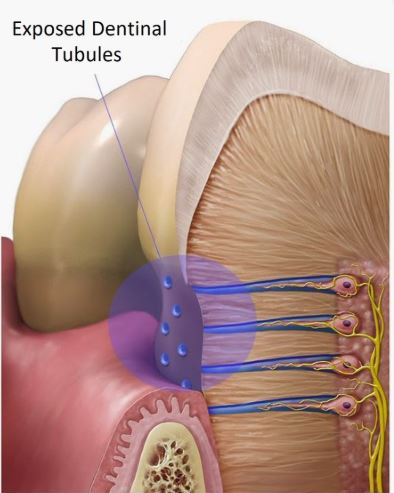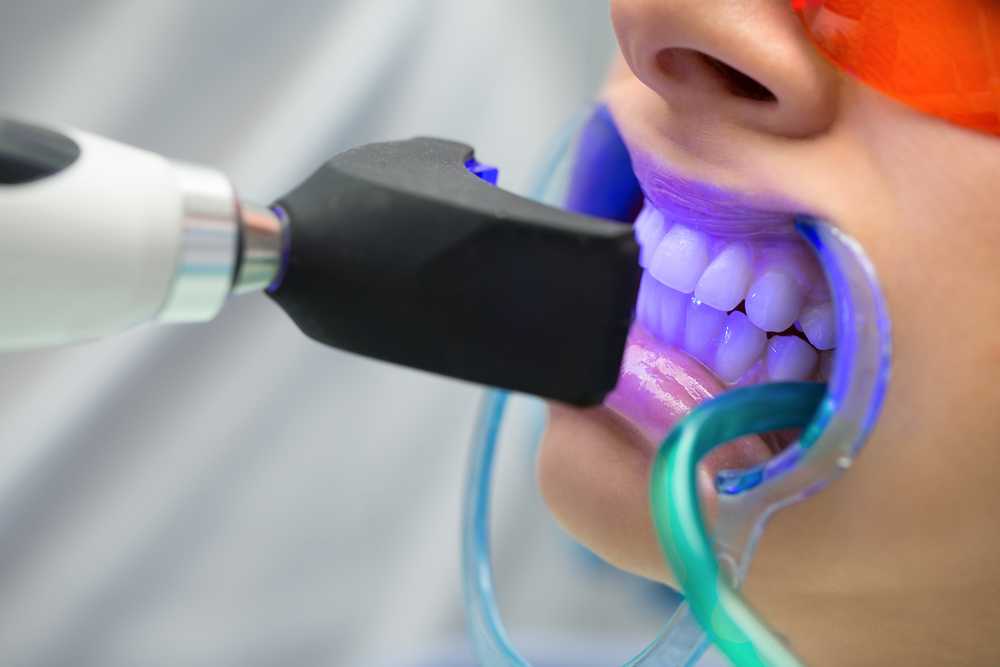Laser treatment can be used in a variety of procedures including:
- comfortable treatment

-
Treat Gum Disease: Using laser for pocket reduction, killing bacteria, stopping bleeding, and improving healing.

2. Gingivectomy: Also known as the Surgical Removal of Excess Gum tissue where the gums’ length covers much of the tooth surface. With this procedure and local anesthesia, lasers can be used to reshape the gum, leaving you with a better smile line.

3. Remove Black Gum: Similar to Gingivectomy, with the usage of local anesthesia and laser, we can remove the thin outer layers of gum tissue that are pigmented and causes darker-looking area.

4. Stop Bleeding: Laser treatment can be used to promote blood clotting and seal blood vessels in order to reduce bleeding and allow the wounds to heal faster.
5. Treat Sensitive Teeth: Teeth that have sensitivity to hot and cold can be treated with dental lasers that seal tubules on the tooth’s root.

6. Teeth Whitening: Lasers speed up the bleaching process by rapidly oxidizing the teeth that are applied with the whitening gel and restoring them to a beautiful white.

Laser Treatment Aftercare
-
After laser gum treatment, you can expect your gum tissue to be discolored, with minor swelling, and slight bleeding.
-
As you can experience mild soreness for several days and the healing process generally lasts about a week, it is recommended that you
- Avoid brushing or flossing the treated area
- Rinse your mouth and let the mouthwash gently fall out instead of spitting
- Abstain from using Nicotine products such as cigarettes
-
Aftercare for Teeth Whitening includes:
-
-
- Avoid colored foods and drinks that can leave stains on your treated teeth the first 2 days or 1 week as recommended by your dentist
- Try using a straw when drinking to avoid leaving stains on your teeth
- Avoid cold foods and drinks as your teeth are prone to sensitivity the first 2 days
- Use sensitive mouthwash 3 times per day to reduce sensitivity
- Avoid smoking the first few days
-